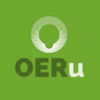Baseline
From WikiEducator
< OERu
| OERu strategic planning | |
|---|---|
| Developing the OERu 2014 - 2017 plan | Home | Process | Working groups | Baseline | Consultation on strategic goals & objectives | Operational priorities | Approved strategic plan 2015 -2017 |
This page answers the question: Where are we now?
We provide a brief summary of the OERu journey and metrics to inform the baseline for the 2014 - 2017 strategic plan.
Brief summary of the OERu journey
- The OER Foundation was established as a charitable organisation in May 2009 to foster and support the development of sustainable ecosystems for OER by supporting education institutions in achieving their strategic objectives using open education approaches.
- The WikiEducator, nurtured by the Commonwealth of Learning during its formative years, began operating as an independent project of the OER Foundation in 2009. WikiEducator is a flagship initiative of the OER Foundation and the number of registered registered user accounts increased from 9600 in 2009 to 80,293 today.
- The OER Foundation convened the OER for Assessment and Credit for Students meeting on 23 February 2011 where the concept of the OERu was proposed and discussed. With funding support from UNESCO, the meeting was streamed live for 202 virtual participants. At time of the meeting, there were 3 contributing partners.
- The first meeting of OERu anchor partners took place on 10 and 11 November 2011 at Otago Polytechnic, New Zealand. A Bachelor of General Studies was proposed as the inaugural credential of the OERu and the network commenced planning for the development of a number of prototype courses. At the time of the meeting, there were 14 contributing partners.
- The second meeting of OERu Anchor Partners was hosted by Thompson Rivers University on 31 October and 1 November 2013 in Kamloops, Canada. The meeting focused on strategic proposals for action contributing to building a sustainable and scalable network and operational decisions to progress the development of a programme of study and related support processes. At the time of the meeting, 32 institutions had signed up as contributing members.
- Sir John Daniel officiated at the launch of the OERu on 1 November 2014 (see video of the launch address).
- The Commonwealth of Learning hosted the OERu Transnational Qualifications and course articulation meeting on 4 November 2013 in Vancouver where actions to progress credit transfer and course articulation in the network were agreed.
- Kwantlen Polytechnic University hosted the inaugural meeting of the OERu Council of Chief Executive Officers on 5 November 2013 in Vancouver. The Council recommended the development of a strategic plan for the OERu.
- A UNESCO-COL Chair in OER was established at Otago Polytechnic and the OER Foundation. The implementation of the OERu is a designated project of the UNESCO-COL Chair network.
- The OERu becomes OER universitas in December 2013 to better reflect the increasingly broad base of participating members.
- In March 2014, the first student who completed an OERu course developed by the University of Southern Queensland successfully applies credit towards degree at Thompson Rivers University.
OERu baseline data and example targets
The baseline data will be used to determine the quantitative level for the indicators of success to be developed for the OERu strategic plan. The baseline data will assist to quantify the extent of change if the desired outcomes are achieved. 1 January 2013 is used as the baseline date for the strategic plan.
| Objective | Baseline data | Example target for 2017 |
|---|---|---|
| | ||
| Recruit minimum number of partners for fiscally sustainable OERu network |
|
|
| Diversify funding sources for OERu strategic projects | Zero baseline. However, the TOUCANs SCORE fellowship investigated the OERu concept for UK implementation. Budget unkown. |
Target $200,000 for the current four year plan. (The emphasis funding proposals for strategic projects is to avoid reliance on 3rd party fiscal resources for operational expenditure.) |
| Build OERu partner community source model for technology innovation and infrastructure support |
No community source contributions from partner institutions. |
|
| | ||
| Publish operational guidelines for OERu quality assurance, credit transfer and course articulation | Completed study on Assessment and Accreditation of Learners using OER. |
|
| Develop resources to support partners for effective engagement in the OERu network |
|
|
| Improve communications and build roles for distributed leadership directing the modus operandi of the OERu |
|
|
| Extend CIPP monitoring and evaluation of the OERu initiative | OERu Context evaluation completed. |
|
| | ||
| Develop product for the OERu (full courses and micro courses) |
|
|
| Develop procedures for streamlining nomination of OERu courses | No agreed procedures for nominating OERu courses. |
|
| Develop guidelines, procedures and strategies for building the OERu programme of study | Consensus decision that Bachelor of General Studies is inaugural credential for the OERu. |
|
| | ||
| OER portfolio development course on how to develop an RPL portfolio | No OER RPL course available | Credit bearing OERu course on RPL portfolio development completed. |
| Free micro OERu courses offered in e-learning format to full-tuition students using local LMS in parallel with free OERu learners using WikiEducator at two or more OERu partners | Parallel mode prototype completed (SP4Ed) |
|
